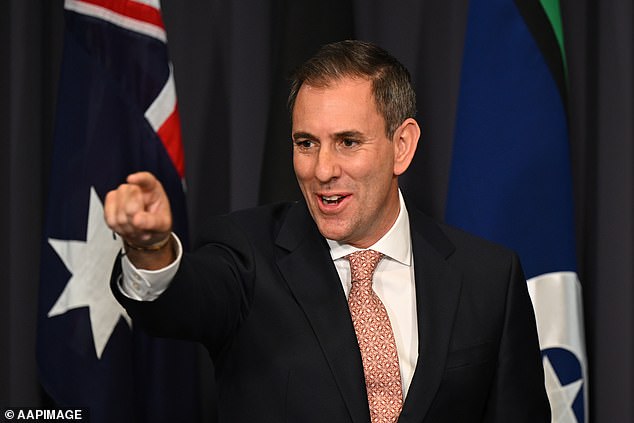How Albo & Co. Are Evading the Mega Tax Hike—And Overlooking Its Clear Flaws
- A new tax will be applied to paper profits within superannuation accounts.
- Must begin making payments once the balance hits $3 million.
- Senators with long-term service won't be required to make payments until they retire.
The Prime Minister has exempted both himself and other recipients of substantial parliamentary pensions from the stringent new superannuation tax that applies to all others.
The fresh tax on uncrystallized super profits mandates immediate payment once individuals hit the taxable limit. However, not for our Albo—he gets to postpone his payments until after he truly retires.
This is typical of politicians who establish different rules for themselves than they do for the general public.
Due to the impending new legislation, individuals with a superannuation balance exceeding $3 million will be required to pay taxes on unrealized gains annually. This might necessitate selling portions of their investments to cover the resulting tax liabilities.
The Prime Minister and other recipients of the traditional parliamentary pension plan are excluded from this rule.
They only need to make this payment upon retiring when they become eligible to receive the funds, at which point it will be available to them with minimal cost attached. inflation the rate is equal to the government bond rate.
The opposing side has charged the Labor Party with hypocrisy, an accusation that holds true.
Nevertheless, several Liberal Members of Parliament continue to frequent Parliament and are eligible for the previous pension plan, thus they stand to gain similarly to Albo.

This encompasses Susan Ley, the new leader of the Liberals, who joined Parliament in 2001, two years prior to the abolition of the previous parliamentary pension scheme for newcomers, which was implemented by John Howard.
A representative for Treasurer Jim Chalmers attempted to use convoluted explanations to defend the favorable tax treatment for the Prime Minister and other political associates. However, it’s clear that Chalmers has included a specific clause in the new legislation designed to benefit those close to him, including his superior.
The proposed tax will be presented to parliament once it reconvenes at the end of July.
Naturally, the choice not to oblige recipients of parliamentary pensions to pay immediate on-paper profits tax is sensible since they cannot liquidate their pension to settle the tax liability as easily as typical superannuation account holders can.
Members of Parliament like Albo might have to offload other possessions to settle the debts, which is quite a significant demand.
However, that's exactly why the new tax is poor policy, and why specialists have deemed it 'defective'.
Nevertheless, Labour continues to move forward with the plan despite growing worries expressed by various groups over the past few weeks.
Even ex-Treasury chief Ken Henry and past RBA governor Philip Lowe have voiced their worries.

Although Labour claims that this new tax will initially affect only a few taxpayers who have superannuation accounts exceeding $3 million, this situation won't last. Since the threshold doesn't get adjusted for inflation, an increasing number of Australians will eventually find themselves obligated to pay this tax.
According to AMP, by the time Generation Z reaches retirement age, one out of every two individuals may have to pay taxes if the $3 million threshold isn't adjusted. The Labor party has stated they do not intend to adjust this threshold.
The Treasury predicts it will generate $40 billion from the tax over the next ten years, with a significant portion of this amount expected to come later in the period as more individuals become subject to the levy.
Critiques of the updated tax extend further than just the absence of indexing.
This description also highlights that it disproportionately affects women since they typically contribute less to their superannuation during periods when they're outside the workforce raising children. Additionally, as women generally have longer life expectancies compared to men, this makes them more dependent on those savings to ensure financial security throughout their extended retirement years.
When a woman’s spouse passes away before her, she typically receives the transfer of his superannuation benefits into her account. If this increases her total holdings above $3 million, a new 30% tax will be applied to the amount she has inherited.
This has consequently led some tax specialists to refer to it as a 'widow tax.'

Agriculturists and individuals utilizing their superannuation for property investments will face significant challenges as well, since these tangible assets cannot be divided and liquidated to cover taxes. Should the assessed value decrease in later years, unfortunately, the tax liability remains unchanged.
As demands for reforms to the new tax continue to escalate, Labor has not yet shown any signs of revisiting its significant shortcomings.
The revised Senate comes into play starting from July 1st, and Labor has the backing of the Greens—who will hold the balance of power independently—to push through this legislative alteration.
Do not anticipate any pressure for changes to the indexing from this group. The Greens aim to have the tax apply starting at $2 million and might manage to secure that adjustment, despite Labor firmly standing behind their chosen $3 million threshold they campaigned with.
Read more
Post a Comment for "How Albo & Co. Are Evading the Mega Tax Hike—And Overlooking Its Clear Flaws"